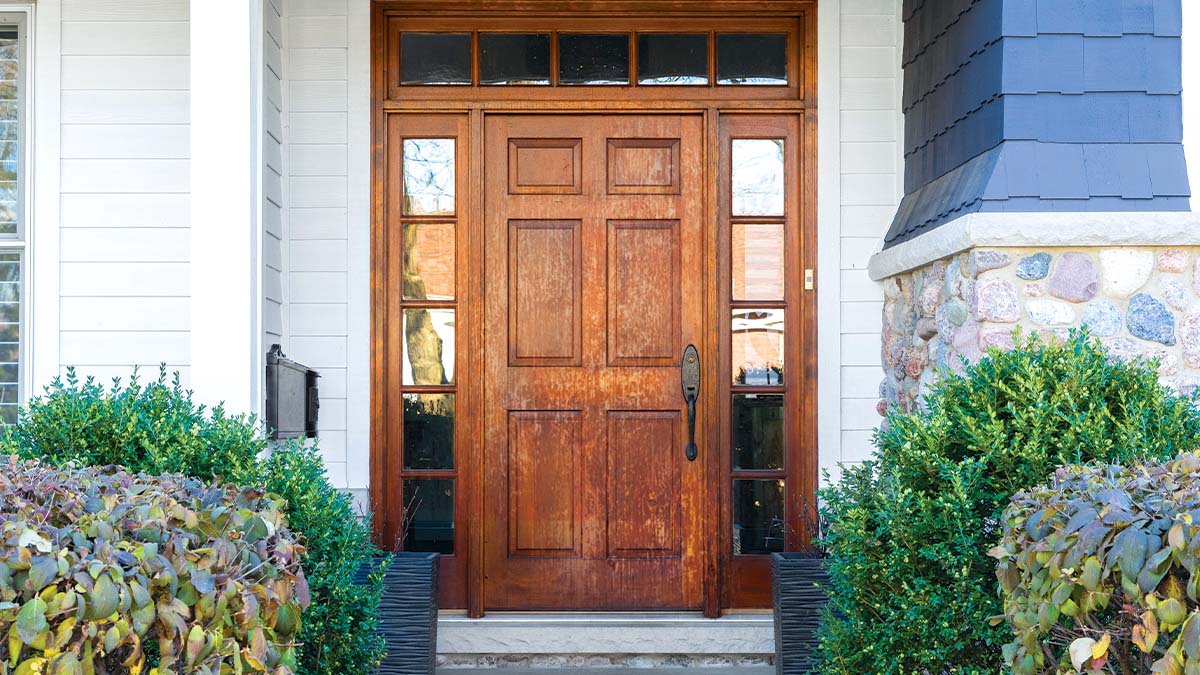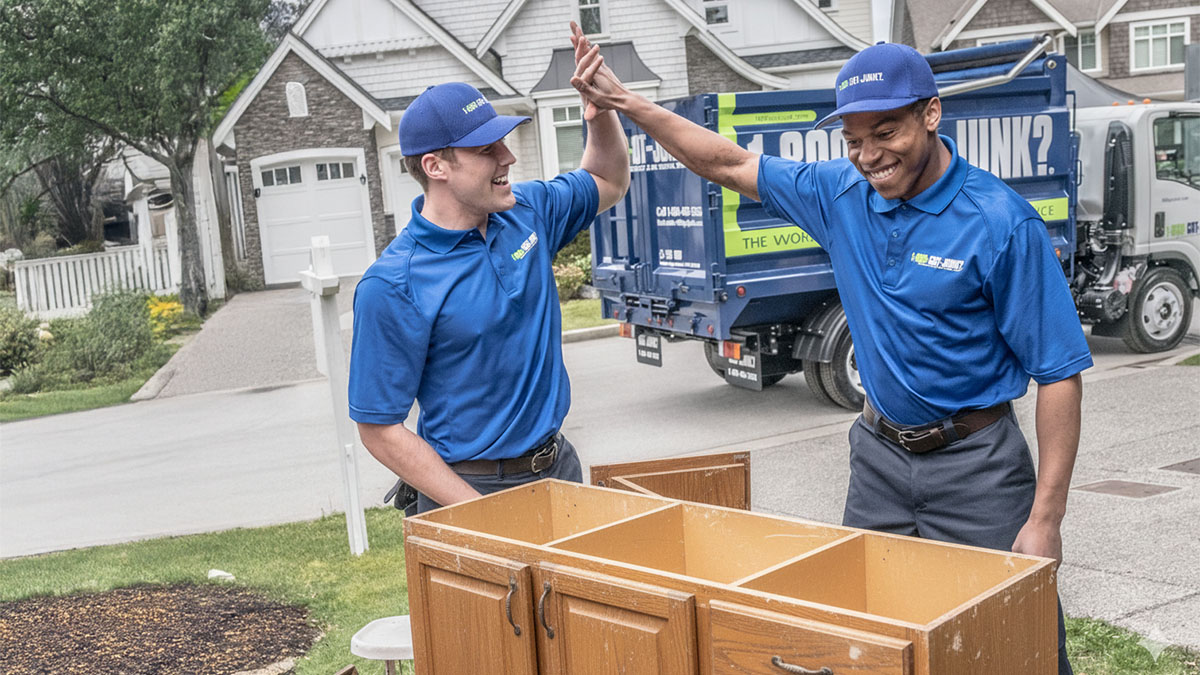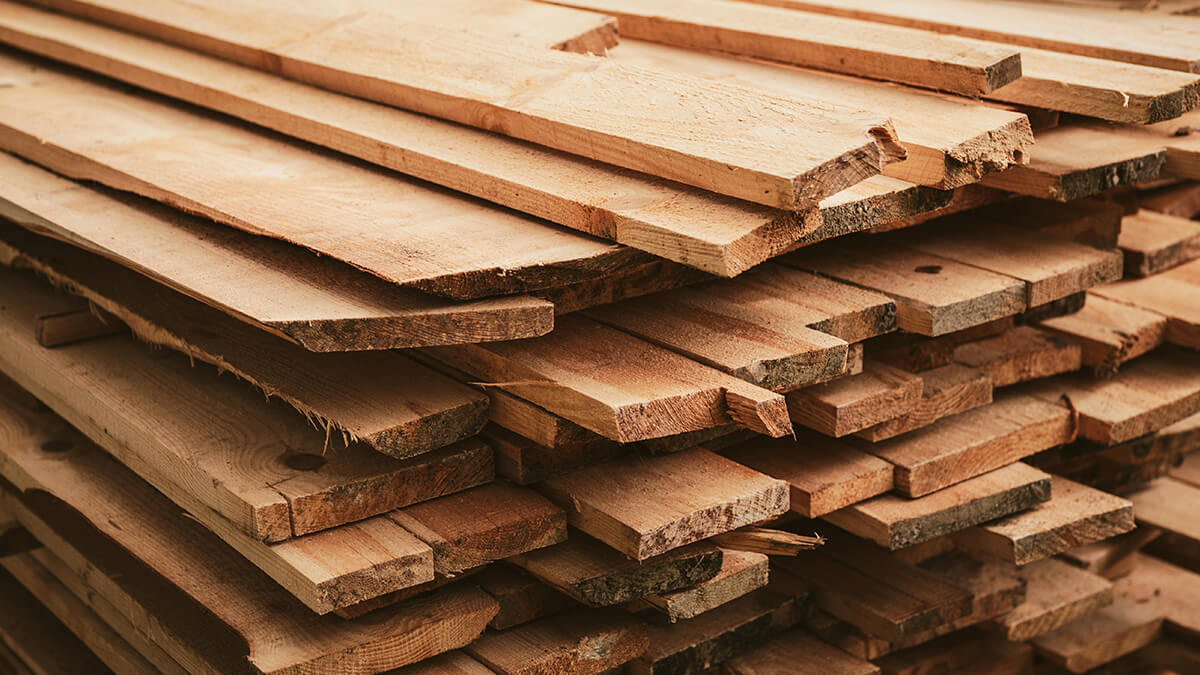Doors play a crucial role in the look and function of our homes, but when the time comes to bid farewell to these fixtures, it's essential to consider environmentally responsible disposal methods.
Here’s a look at the various types of old doors, the common materials they're built with, and eco-friendly options for recycling doors or disposing of them. Additionally, we'll talk about the best practices for handling door components, such as handles, letterboxes, hinges, and more.
Table of Contents (skip to each section)
- Types of old doors
- How to recycle or reuse different types of old doors
- Best practices for disposing of door components
- 1-800-GOT-JUNK? can make getting rid of your old door easy
Types of old doors
Understanding the characteristics of each type of old door allows you to make informed decisions when it comes to disposal, recycling, or repurposing.
Each type contributes to the overall look and function of a space, and considering their individual qualities is crucial for sustainable and responsible door disposal. Here are some things to consider about these doors:
Wooden doors
- Solid wood: Solid wood doors are known for their timeless appeal and sturdy construction. Crafted from hardwoods such as oak, mahogany, or maple, these doors give off a classic and elegant look. They are often found in traditional and historic homes, adding warmth and character to interior spaces.
- Hollow core: Hollow core doors are lighter and more affordable than solid wood doors. They feature a honeycomb or grid structure inside, making them a popular choice for interior doors in homes and residential buildings. While they may lack the heft of solid doors, they still provide privacy and sound insulation.
- Paneled: Paneled doors are characterized by decorative panels on the surface, adding a touch of sophistication to any room. The panels can be raised or flat, and the number of panels can vary. This style is versatile and can be adapted to both traditional and modern design aesthetics.
Metal doors
- Steel: Steel doors are well-known for their durability, security, and fire resistance. Commonly used in commercial and industrial settings, steel doors provide strong protection. They are also popular for residential entry doors due to their strength and low maintenance.
- Aluminum: Aluminum doors are lightweight, corrosion-resistant, and often chosen for modern architectural designs. They are commonly used in commercial buildings and residential spaces, particularly in areas with high humidity or coastal climates where corrosion can be a concern.
- Iron: Iron doors are characterized by their ornate designs and substantial weight. Found in historic or upscale homes, these doors often feature intricate scrollwork and decorative elements. Iron doors provide a sense of security and a timeless aesthetic.
Glass doors
- French doors: French doors are well-known for elegance and openness. Featuring glass panels, they allow natural light to flow between rooms, creating a seamless transition. French doors are popular both inside and outside, adding a touch of sophistication to living spaces.
- Sliding glass: Sliding glass doors are space-saving and contemporary. They are commonly used for access to patios, balconies, or gardens, providing unobstructed views of the outdoors. These doors enhance the visual appeal of a space and create a connection between indoor and outdoor living areas.
- Stained glass: Stained glass doors feature colorful and artistic designs created by assembling pieces of colored glass. Often found in older homes and historic buildings, these doors add a unique and artistic touch to entryways and interior spaces. Stained glass doors are prized for their craftsmanship and visual impact.
How to recycle or reuse different types of old doors
Understanding your recycling and disposal options for common door materials and components can help you make informed choices that contribute to environmental sustainability and responsible waste management. Proper disposal practices not only reduce the environmental impact but also open up opportunities for creative repurposing and community contributions.
Wood
Wooden doors, whether solid wood or hollow core, can be recycled in various ways. One common method is to process them into wood chips or mulch, which can be used for landscaping or as a biomass fuel source. Some recycling facilities specialize in reclaiming lumber from old doors, giving the wood a second life in construction or furniture projects.
Old wooden doors can also be repurposed into unique and functional items. Salvaging the wood for DIY projects provides an eco-friendly alternative to disposal. With the wood, you can create tables, shelves, or room dividers.
Metal
Metal doors, especially those made of steel or aluminum, are highly recyclable. Recycling facilities can process the metal components, melting them down to create new metal products. Scrap yards often accept metal doors.
Local scrap yards are key players in the recycling process for metal doors. Homeowners can contact these facilities to arrange the drop-off or pickup of metal doors for recycling.
Glass
Glass doors can be recycled to create new glass products. It's essential to check with local recycling facilities to ensure that they accept glass doors. Some facilities may have specific requirements, such as separating the glass from other materials before recycling.
If the glass in the doors is in good condition and features unique or artistic designs, consider donating it to local artists or craftsmen who specialize in working with recycled materials. Reusing the glass in creative projects adds value to the material and reduces overall waste.
1-800-GOT-JUNK? can help remove your glass safely and responsibly. Find out more about our glass removal service.
Best practices for disposing of door components
When disposing of door components, it's important to prioritize reuse and recycling to minimize environmental impact. Additionally, exploring creative ways to repurpose components can add a personal touch to your home while reducing overall waste.
Always check local regulations and recycling facilities to ensure that items are disposed of responsibly and in accordance with environmental guidelines.
Handles and knobs
If the handles and knobs are still in good condition and functional, consider donating them to local charities, thrift stores, or community centers. Many organizations accept donations of hardware for resale or reuse, providing affordable options for others in the community.
If the handles and knobs are made of metal, they can be recycled. Local metal recycling facilities often accept small metal items, including door handles and knobs.
Hinges and hardware
Salvaging hinges and hardware for future DIY projects is a sustainable practice. Before disposing of them, assess whether they can be repurposed for other doors or furniture. Additionally, consider donating them to organizations that specialize in reclaimed materials.
If hinges and hardware are made of metal, they can be recycled with other metal items. Recycling these components ensures that the metal is diverted from landfills and used in the production of new materials.
Letterboxes
Transforming old letterboxes into creative storage solutions or planters is an eco-friendly option. This not only prevents them from ending up in landfills but also adds a unique and decorative element to your home or garden.
If letterboxes are made of metal, they can be recycled through local scrap yards or metal recycling facilities.
Wooden parts
Wooden parts of doors, such as frames and panels, can be repurposed for various DIY projects. Consider using them to create furniture, art pieces, or even as decorative elements in your home or garden.
If the wooden parts are not suitable for repurposing, they can be recycled. Wood recycling facilities may process these materials into mulch, biomass fuel, or reclaimed lumber for construction projects.
Other components
Check if locks, latches, and other components are still functional. If they are in good condition, consider reusing them for other projects or donating them to organizations that can repurpose them.
Like other metal components, locks, latches, and similar items can be recycled through local scrap yards or metal recycling facilities. Separating these metal parts from other materials before recycling ensures efficient processing.
1-800-GOT-JUNK? can make getting rid of your old door easy
Disposing of old doors can be an eco-friendly process when approached with sustainability in mind. By recycling, repurposing, and reusing, we can reduce waste and contribute to a more environmentally conscious lifestyle. Whether your doors are made of wood, metal, or glass, there are plenty of options for responsible disposal.
If you’re wondering where to dispose of old doors near you, 1-800-GOT-JUNK? can make the whole process so much easier. Just contact your local 1-800-GOT-JUNK? franchise, get an estimate, point it out and watch your old door disappear! We take old doors and a lot of other junk, including e-waste, old furniture and more. Find out more about what we take.






